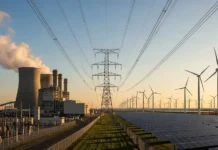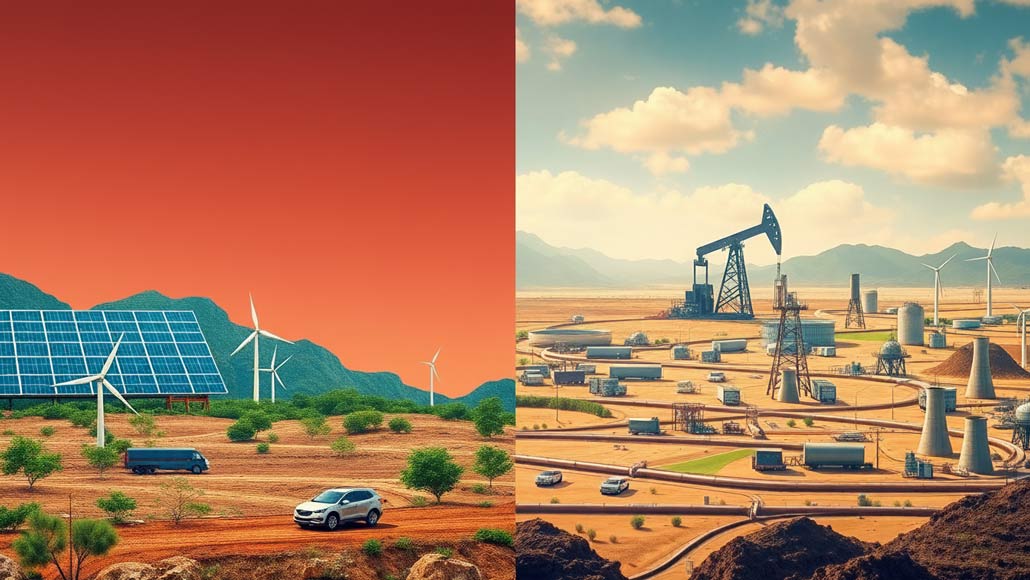Rising global temperatures and the growing imperative of climate action have pushed the world’s largest economies into a global energy race to dominate renewable energy. The international race for clean energy is already on, with China’s focused investments and government support threatening to overtake the United States’ dominance of the industry for decades.
For many decades, the United States was believed to be at the forefront of solar technology and renewable innovation. That position faced a challenge as Washington’s policy direction turned towards fossil fuel industries. Under the Trump administration, the push for coal, oil, and natural gas was given a boost, while federal backing for renewables was kept to a minimum. This realignment has inadvertently bolstered China’s position in the global energy race. When American funding ebbed, Beijing increasingly stepped up its game in solar, wind, and electric vehicle technologies, rewriting the trajectory of global innovation and redrawing the strategic energy landscape.
The rise of China’s clean energy industry is a product of careful, long-term planning. By the late 2000s, the government had recognized solar energy as a priority sector. With the support of subsidies and policy intervention, capacities increased, costs came down, and performance improved. This resulted in highly competitive solar products that found international acceptance. Currently, China is not only a leader in solar power but also a world power in wind energy and electric transport.
The magnitude of this achievement is large. China has installed close to three times as many wind turbines as those in the United States, with its solar capacity much higher than American production. It also boasts five of the global top ten electric vehicle makers and is a world leader in the battery industry. These advances have reduced levels of pollution, generated employment opportunities, and brought new export markets, cementing China’s influence through global trade and supply chains.
The path of U.S. energy policy has gone in a very different direction. Federal incentives for solar and wind were revoked to subsidize building up fossil fuel sectors. While intended to support legacy industries, this policy change has slowed the growth of renewables.
Some of the strongest incentives included the reduction of subsidies made under the 2022 Inflation Reduction Act. These were also preceded by new restrictions placed on renewable projects that relied on Chinese inputs. While these policies were intended to push back at Chinese industry, they also made many American projects economically unworkable, limiting growth in domestic clean energy capacity.
The consequences of these changes reach beyond short-term project finance. The loss of federal funding has produced uncertainty among entrepreneurs and private investors, limiting the injection of capital into nascent clean energy technologies. Venture capital firms have reported that some U.S. climate-tech companies are now looking overseas, where long-term policy regimes offer more certainty.
This trend has implications for economic competitiveness. The loss of new firms and technologies could erode the United States’ ability to shape the industries of the future. China’s consistent, scaled-up clean technology investment has positioned it as a leading contender in the global clean energy competition, whereas America may reduce its role in shaping next-generation energy markets.
Alongside these policy shifts, the administration’s response to climate science has been universally criticized. Attempts to cancel the Obama-era “endangerment finding,” which serves as the legal basis for regulating greenhouse gas emissions, were based on a report that scientists across the board characterized as inaccurate and biased.
More than 85 experts provided a comprehensive rebuttal, pointing out fallacies and noting that the report had also ignored decades of peer-reviewed evidence. They referenced that policymaking supported by science has an important role to play in such a manner to deal with threats from climate change effectively. This exchange illustrates how regulation has to be derived from substantiated research rather than old or unfounded statements.
As the world moves to respond to the crisis of climate change, what the United States and China do will have long-term effects. The U.S. itself is now having to address starkly urgent issues of its own commitment to renewable investment, technological innovation, and longer-term competitiveness. The outcome of this international competition for clean power will decide not only economic supremacy but also the stability of energy systems for the next few decades.










































